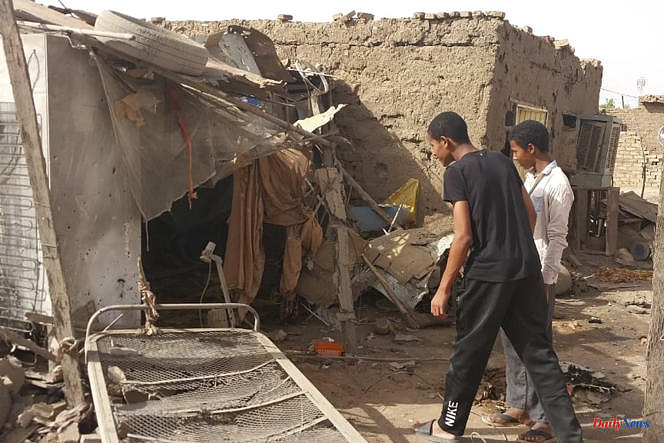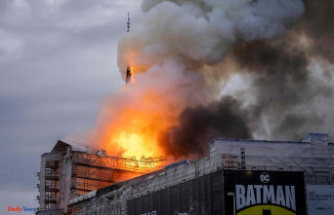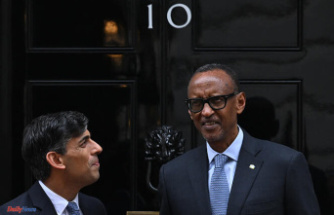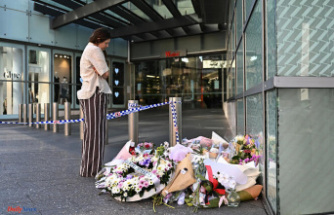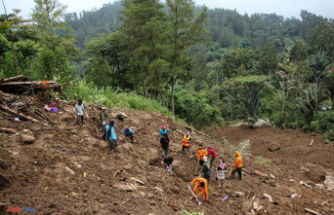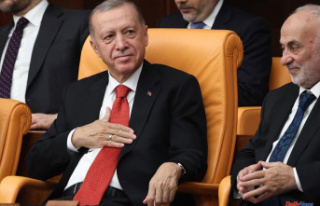The war is entering its eighth week in Sudan, under fire from the army and paramilitaries. The sound of fighting echoed on Saturday June 3 in the northern suburbs of the capital Khartoum and a rain of shells fell on the south of the city, injuring several civilians, residents told Agence France -Press (AFP).
The Sudanese Red Crescent said in a statement that 180 unidentified bodies were buried: 102 in southern Khartoum and 78 in Darfur. Since the beginning of the war, on April 15, between the army led by General Abdel Fattah Al-Bourhane and the paramilitaries of the Rapid Support Forces (RSF) of General Mohammed Hamdan Daglo, humanitarians and volunteers have experienced, say- they, difficulties in recovering the bodies "due to security constraints".
Talks between emissaries of the belligerents organized in Saudi Arabia, in Jeddah, had however resulted in a commitment in principle to "protect civilians" and allow humanitarian workers to "collect, register and bury the dead in coordination with the competent authorities". But the army withdrew from these negotiations on Wednesday and the next day the United States and Saudi Arabia said they were officially suspending them.
Blocked buses
Alongside the Americans and the Saudis, the African Union – which suspended Sudan in 2021 – and the Intergovernmental Authority on Development – the East African regional bloc of which the country is a part – have said they are ready to implement a roadmap for the country, one of the poorest in the world. On Saturday, an emissary from General Daglo met Kenyan President William Ruto in Nairobi, the latter said on Twitter.
Despite the announcement of American sanctions against the army and the paramilitaries, the fighting with heavy weapons continues, the looting continues and the number of displaced people continues to increase. In Khartoum, civilians are deprived of running water and face cash shortages and power cuts. Bus drivers linking Khartoum and its provinces said on Saturday "to be blocked by the authorities at the gates of the capital" of more than 5 million inhabitants.
The conflict has already claimed the lives of more than 1,800 people and created more than one and a half million displaced persons and refugees. At least 18 civilians were killed on Wednesday by army artillery fire and aerial bombardment at a market in Khartoum. Experts say they fear a massive army offensive after the announcement of the redeployment of its troops in the capital. Opposite, the FSR continue to take up residence in hospitals or civilian homes.
The situation is even more serious in Darfur, bordering Chad, and the situation is likely to worsen with the approach of the rainy season, synonymous in Sudan with a resurgence of malaria, food insecurity and child malnutrition. Displaced people told Médecins sans frontières (MSF) that they had seen "armed men shooting at people trying to flee on foot, villages looted and the wounded dying". Witnesses on Saturday reported fighting around the town of Kutum in North Darfur.
With a third of Sudan's 45 million people in need of humanitarian assistance, aid shipments arriving by air are blocked at customs and international staff are denied visas to relieve local workers who are exhausted or holed up at home . Eighteen aid workers have been killed since the start of the conflict.
The UN Security Council on Friday extended by just six months the United Nations political mission in Sudan, whose leader Volker Perthes is no longer welcome in the country. General Bourhane called last week for the dismissal of the head of the mission, making him bear the responsibility for the war. But UN Secretary-General Antonio Guterres expressed his "absolute confidence" in Mr. Perthes.

